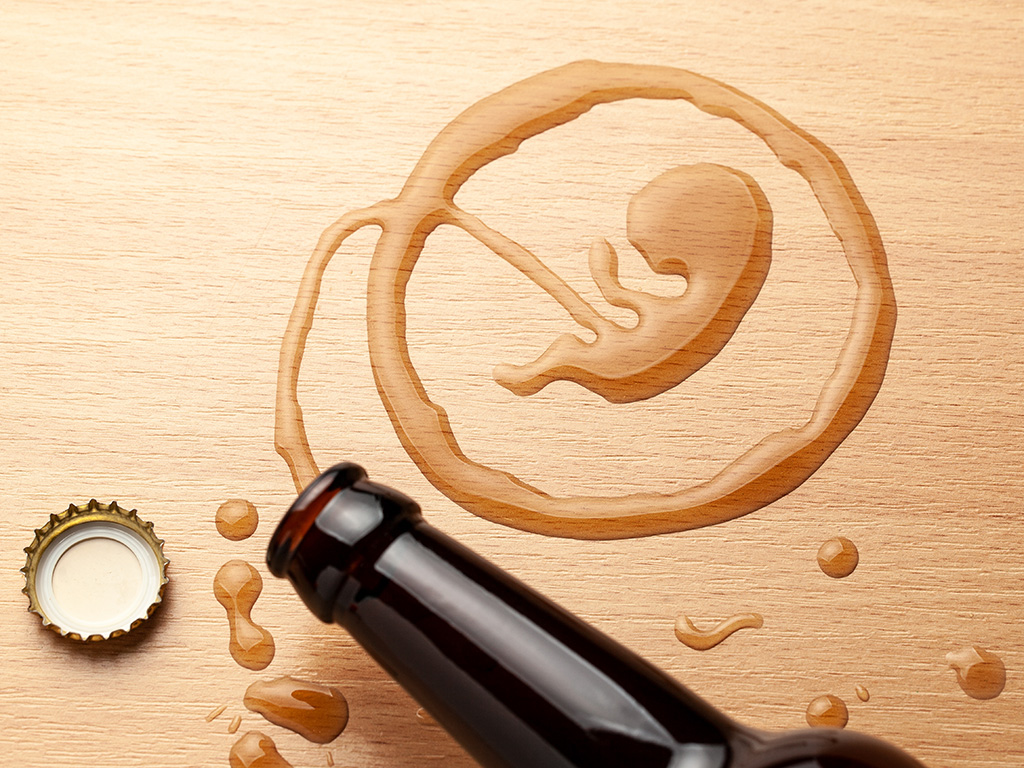Alcohol use among men may interfere with success of in vitro fertilization, new Texas A&M study indicates

Research from Michael Golding’s laboratory at Texas A&M University indicates that male alcohol use has a significant negative influence on in vitro fertilization (IVF) success rates, thus increasing patient financial burden and emotional stress.
The recently published work is part of Golding’s research program focused on understanding how male drinking prior to conception contributes to the development of alcohol-induced birth defects and disease. This study highlights the importance of expanding fertility and pre-pregnancy messaging to emphasize the reproductive danger of alcohol use by both parents, not just the mother.
Couples struggling with fertility are increasingly using assisted reproductive technologies (ART) like IVF to have children.
The Centers for Disease Control and Prevention estimates that about 2% of all babies born in the United States are conceived using ART, which would mean one in 50 babies were conceived using ART in 2021, according to the CDC’s provisional births data.
These statistics highlight the growing importance of looking at both parent’s contributions to fertility and pregnancy outcomes, according to Golding, an associate professor in the School of Veterinary Medicine & Biomedical Sciences’ Department of Veterinary Physiology & Pharmacology.
“We say to the woman, ‘you need to be careful of what you eat. You need to stop smoking. You need to be doing all these different things to improve fertility,’” Golding said. “We don’t say anything to the man, and that’s a mistake, because what we’re seeing here is that the couple’s odds of success with their IVF procedure are increasing simply by addressing both parents’ health habits.”
Golding’s research used a mouse model to determine the effects of a potential father’s drinking on IVF pregnancy outcomes. The model included a control group that represented males who do not drink, a group that represented males who participate in chronic drinking at the legal limit, and a group that represented males who participate in chronic drinking at one and a half times the legal limit.
The results of the research revealed that the more a male drinks before providing sperm for an IVF pregnancy, the less likely the pregnancy is to be successful.
“Seeing the negative effects in both the legal limit group and the group drinking at one and a half times the legal limit revealed that as alcohol dose increases, things get worse,” Golding explained. “That really surprised me. I didn’t think that it would be that cut and dry. That really emphasized that even very modest levels of exposure were breaking through and having an impact on conception, implantation, and overall IVF pregnancy success rates.”
Alexis Roach, a doctoral candidate helping conduct research in Goldings lab, served as first author of the recently published IVF research paper. She said their findings and other research conducted in Golding’s laboratory challenge the primarily maternal-focused narrative of previous IVF research. She also said it’s important to make the findings of this research accessible to the public.
“The most important aspect of this research is that it makes it clear that everybody plays a role in achieving successful pregnancy outcomes, even though the general assumption is that it’s just women,” Roach said. “The most important thing to take away from this is that if you’re a male considering having a family, abstain from alcohol until your wife gets pregnant.”

